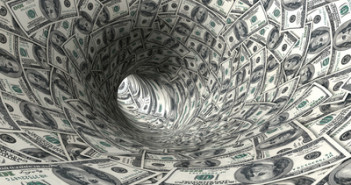It is now quite clear the Fed Chairman Ben Bernanke will not continue in his position when his term ends in January 2014. The debate about his successor is heating up, and two main candidates are emerging: Janet Yellen and Larry Summers.
US President Barack Obama is reportedly thinking about the nomination and will present his choice in the coming months. These choices will have a very different impact on the US dollar.
Yellen
Janet Louise Yellen, 66, is the Vice Chairman of the Board of Governors of the Federal Reserve System. During her long career, Yellen has been mostly in academy, but also served as Bill Clinton’s Council of Economic Advisers between 1997 and 1999. Since 2004, she has been with the Federal Reserve, first as the president of the San Francisco Fed and then as Vice Chairman since 2010.
Yellen is considered close to Bernanke: a clear dove. She isn’t one of the most prominent speakers in the Fed, but her leaning towards monetary easing are known. She has always sided with Bernanke.
Nominating Yellen would be the natural way to go: she is “first in line to the throne”, has worked closely with Bernanke and sees policy eye to eye with him.
Her dovish stance means that QE tapering will be a slower process and any bumps in the economic recovery will slow down any exit from monetary loosening. More bond buying eventually spills into stocks, so there is no wonder that 70% of Wall Street respondents in a CNBC survey believe that Obama will nominate Yellen, and 50% believe that he should. Larry Summers is way behind in both surveys and received lower grades.
So, an announcement about Yellen is expected to boost stocks and weaken the US dollar. Bernanke’s recent dovish remarks sent the dollar tumbling down, and we could certainly see that again with Yellen.
Summers
Lawrence Henry “Larry” Summers was, former treasury secretary and Director of the White House United States National Economic Council for President Barack Obama until November 2010. He also served as the president of Harvard University.
Summers praised the repeal of the Glass-Steagall act that limited commercial bank securities activities and affiliations between commercial banks and securities firms. Summers was also active in preventing the regulation of derivatives, one of the things that contributed to the financial crisis.
As president of Harvard, Summers was involved in a few controversies, including problematic statements regarding women. As the head of Obama’s NEC, Summers stirred the stimulus program, which also was also criticized by various policymakers for not being bold enough.
While Summers might be a brilliant person, his “achievements” in top positions are quite controversial if not harmful.
For the US dollar though, nominating Summers could be very beneficial, as he made dismissive remarks regarding QE:
QE in my view is less efficacious for the real economy than most people suppose
This is a somewhat surprising approach due his previous pro Wall Street actions, but perhaps QE is not the only thing he can do for the street.
Conclusion
The actual course of the dollar depends on a wide array of domestic and global factors, but monetary policy has the most important role. The new Chairman will begin only in January, and his/her actual deeds will move markets. However, the nomination by Obama and even the speculation alone can certainly move markets.
What do you think?
Further reading: Falling inflation could push QE tapering towards late 2013
